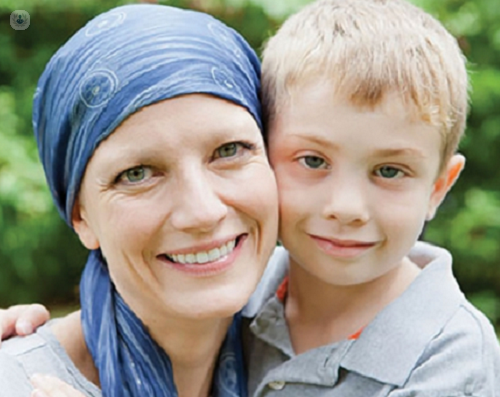Importance of assessment and counseling in familial cancer
Written by:Through genetic counseling in hereditary cancer to people involved about their risk of developing cancer and the chances of passing are informed their children. In addition, it also helps them to understand and interpret the risk and advises them on how to make important decisions about their health care, prevention methods and resources to accept and assimilate this information.

It is a psycho - educational process that seeks to empower people in making decisions about genetic testing, screening and prophylactic treatments available, as well as for subsequent follow - up with a proper understanding of the genetic and medical information, as well as psychological and social .
Main objective of genetic counseling in familial cancer
While it is clear that the realization of cancer genetic counseling has its psychological, ethical, social and legal consequences, benefits tend to be higher.
Comprehensive care units of genetic counseling in hereditary cancer, the goal is to train the person who comes to the office to use genetic information in a useful way, minimizing psychological distress and helping his personal control.
Information provided in genetic counseling in cancer
The information that the questioner is supplied differs from other medical information in 3 important psychological aspects:1) Genetic information is probabilistic and uncertain, so it never offers the security of a diagnosis.2) it offers a limited or probable invasive disease control mutation controls.3) The transmission can be genetically susceptible generate guilt and difficulty of communication between family members.
Positive and negative effects of genetic counseling in cancer
The results of genetic testing may have benefits or limitations for the person who receives them.When the result is positive:- Benefits:1) Relieving the uncertainty of not knowing if there is a family genetic alteration2) Give explanation had cancer, especially if it occurs at an early age or a second cancer3) Power alert and inform family members who may be at risk- Limitations:1) concern the family impact may cause the news2) guilt to convey the problem to other relatives
When the result is inconclusive or uncertain:- Benefits: general does not usually present any benefit to the subject who receives- Limitations: non-adherence to follow-up measures, uncertainty, discouragement and anxiety
In healthy family, the results can cause different reactions.When the result is positive:- Benefits: adjust the monitoring measures based on risk- Limitations: revolve around emotional and family changes, as well as follow-up measures
When the result is negative:- Benefits:1) Avoid adherence to intensive monitoring measures2) Adjust the perception of risk to the real risk3) Great relief of knowing not carrying the mutation- Limitations:1) Survivor Guilt2) No adherence to population monitoring measures
Possible psychological consequences of genetic counseling in cancer
There are certain psychological consequences that can lead to cancer genetic counseling:- Anxiety, due to the uncertainty generated prior to the study process as well as the receipt of the outcome and its consequences.- Fear and concern related to the overestimation of risk, which occurs in many individuals seeking consultation, leading to the belief that family will develop cancer or be carriers of genetic alteration family. In the person subject to the study generates the feeling that they will be carriers of the mutation or they will develop a new cancer.- Vulnerability, associated with the feeling of loss of self and family health.- Hypervigilance resulting in excessive attention to any physical symptom or change body associable to cancer.- Recalling emotional processes and shared with other family members affected or deceased Anguish.- Impotence considered the idea fated to suffer the disease.- Guilt associated with the fear of having transmitted to their children the genetic mutation.- Survivor Guilt, especially in patients who do not develop the disease but do other family members (children), who were also at risk.- Rabies directed to predecessors for having transmitted the mutated gene and, at the same time, guilt by getting angry with them, especially if they have died from the disease.
Benefits of psychological intervention in genetic counseling
The fact that there is a psychological intervention in this type of study is very positive. The benefits of therapy expert in psychology oncological are:- Evaluate and enhance the understanding of the information received.- Detect and solve problems related to the study.- Analyze domestic communication and risk potential candidates can reject the study for lack of information or other personal problems, favoring they go to hospital to get genetic testing.- To promote adherence to medical prescriptions and adapt to a new reality, encouraging compliance with the established tests.
Edited by Patricia Crespo Pujante



